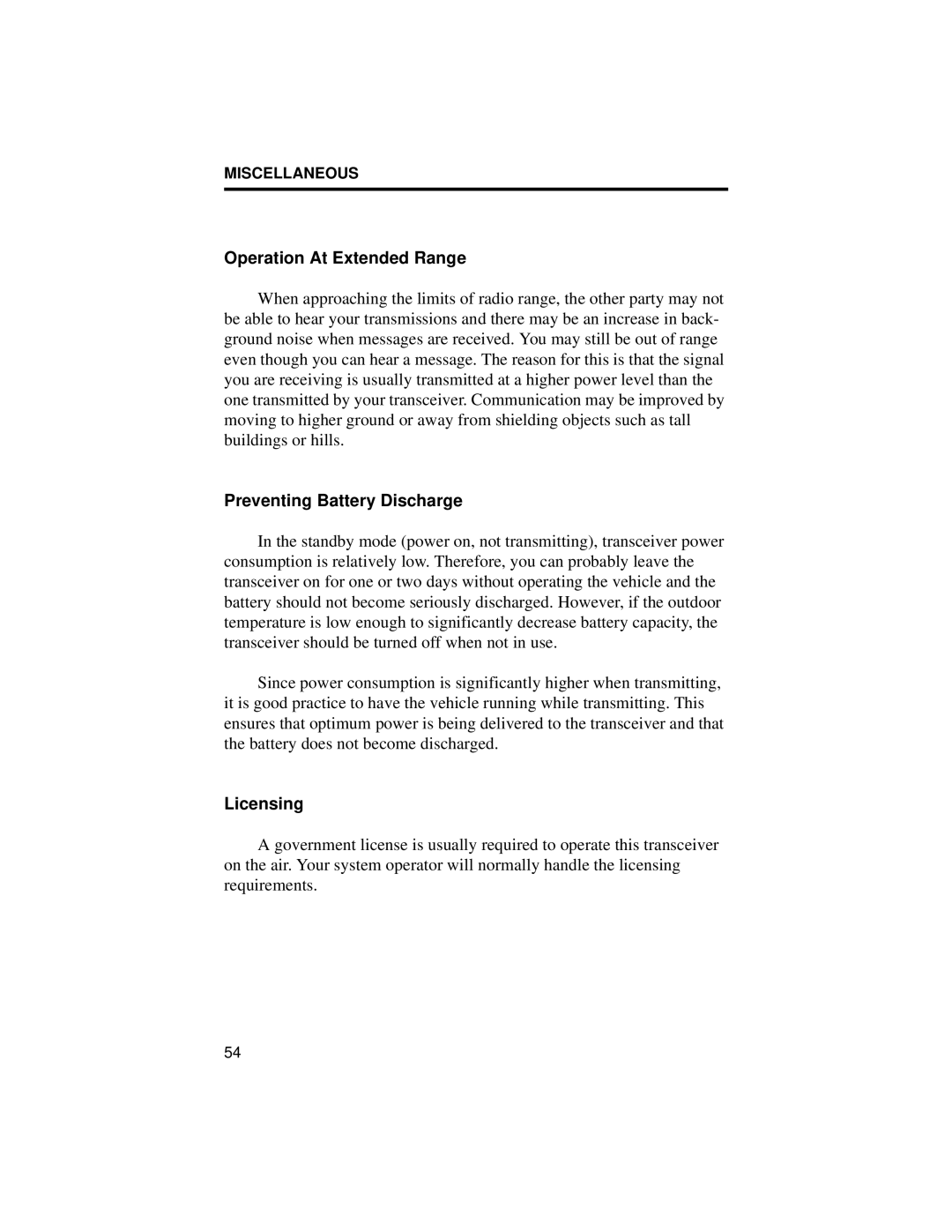MISCELLANEOUS
Operation At Extended Range
When approaching the limits of radio range, the other party may not be able to hear your transmissions and there may be an increase in back- ground noise when messages are received. You may still be out of range even though you can hear a message. The reason for this is that the signal you are receiving is usually transmitted at a higher power level than the one transmitted by your transceiver. Communication may be improved by moving to higher ground or away from shielding objects such as tall buildings or hills.
Preventing Battery Discharge
In the standby mode (power on, not transmitting), transceiver power consumption is relatively low. Therefore, you can probably leave the transceiver on for one or two days without operating the vehicle and the battery should not become seriously discharged. However, if the outdoor temperature is low enough to significantly decrease battery capacity, the transceiver should be turned off when not in use.
Since power consumption is significantly higher when transmitting, it is good practice to have the vehicle running while transmitting. This ensures that optimum power is being delivered to the transceiver and that the battery does not become discharged.
Licensing
A government license is usually required to operate this transceiver on the air. Your system operator will normally handle the licensing requirements.
54
